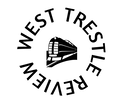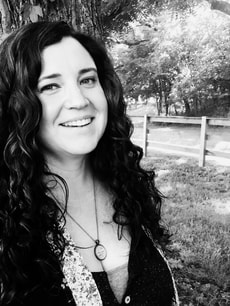Chapter from Handbook for the Newly Disabled: Disability is the Crescendo of a Bette Midler Song [with Photo Illustrations]
I.
First the strings. See her face smooth as paper—flawless,
rouged—her lips O, her tongue fluid against teeth. Next the piano.
Then the strings—dear God the strings—again and again. We slow.
Now the winds. Her eyes lift. She knows what’s
coming, we slow again though the notes climb and climb.
II.
Accessibility Note:
Photo of a young girl in a cloth diaper and white bonnet. She clutches
her father’s wooden back scratcher in her right hand—sword and club.
Photo paper curls at rounded corners. Something sticky resides
on the matte back side and a blue-penned date from a mother’s hand fades.
As a woman, this young girl will regret all the ways she used her body.
III.
And the strings. The strings. The strings.
Her neck only so slightly exposed, but then
her chin lifts more--
imperceptible.
Her face a porcelain mirror, her voice a hammer.
IV.
Accessibility Note:
Photo of a young girl and a woman. Both are smiling. Both let sun stream
through their curls, invite wind to tousle, joust hair across cheeks. The woman thinks
about the night she lay in her son’s bed while the house slept, imagined her children
living on after her suicide. The woman must learn to walk over and over. Pain
streaks down the backs of her legs like worms under the skin of a crushed roadside deer.
V.
Her voice hammers a period into the air
after each word. This climb to crescendo is agony
but vibrating and pure in the bones like hymn. Recognize the cry, like calls
to like. She is too contained—marble smooth—as her hand,
a bird’s somber flight call, gestures—oil dancing on water.
First the strings. See her face smooth as paper—flawless,
rouged—her lips O, her tongue fluid against teeth. Next the piano.
Then the strings—dear God the strings—again and again. We slow.
Now the winds. Her eyes lift. She knows what’s
coming, we slow again though the notes climb and climb.
II.
Accessibility Note:
Photo of a young girl in a cloth diaper and white bonnet. She clutches
her father’s wooden back scratcher in her right hand—sword and club.
Photo paper curls at rounded corners. Something sticky resides
on the matte back side and a blue-penned date from a mother’s hand fades.
As a woman, this young girl will regret all the ways she used her body.
III.
And the strings. The strings. The strings.
Her neck only so slightly exposed, but then
her chin lifts more--
imperceptible.
Her face a porcelain mirror, her voice a hammer.
IV.
Accessibility Note:
Photo of a young girl and a woman. Both are smiling. Both let sun stream
through their curls, invite wind to tousle, joust hair across cheeks. The woman thinks
about the night she lay in her son’s bed while the house slept, imagined her children
living on after her suicide. The woman must learn to walk over and over. Pain
streaks down the backs of her legs like worms under the skin of a crushed roadside deer.
V.
Her voice hammers a period into the air
after each word. This climb to crescendo is agony
but vibrating and pure in the bones like hymn. Recognize the cry, like calls
to like. She is too contained—marble smooth—as her hand,
a bird’s somber flight call, gestures—oil dancing on water.
Allison Blevins is the author of four poetry chapbooks and the poetry collection Slowly/Suddenly (Vegetarian Alcoholic Press, 2021). Her lyric memoir Handbook for the Newly Disabled (BlazeVox, 2022) and her hybrid poetry collection Cataloging Pain (YesYes Books, 2022) are forthcoming. She is the Director of Small Harbor Publishing and the Executive Editor at the museum of americana.
Art: Midnight, oil on paper, Paulina Swietliczko
Powered by Women

